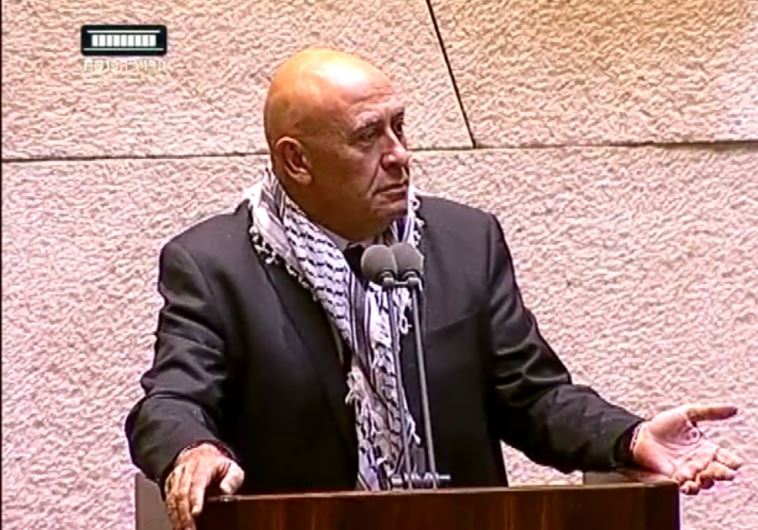Police question Arab-Israeli MK suspected of passing phones to Palestinian inmates
Environment Minister Ze'ev Elkin meanwhile continues signature-gathering operation to start the process of impeaching Joint List MK Basel Ghattas.
 (photo credit: KNESSET CHANNEL)Updated:
(photo credit: KNESSET CHANNEL)Updated: